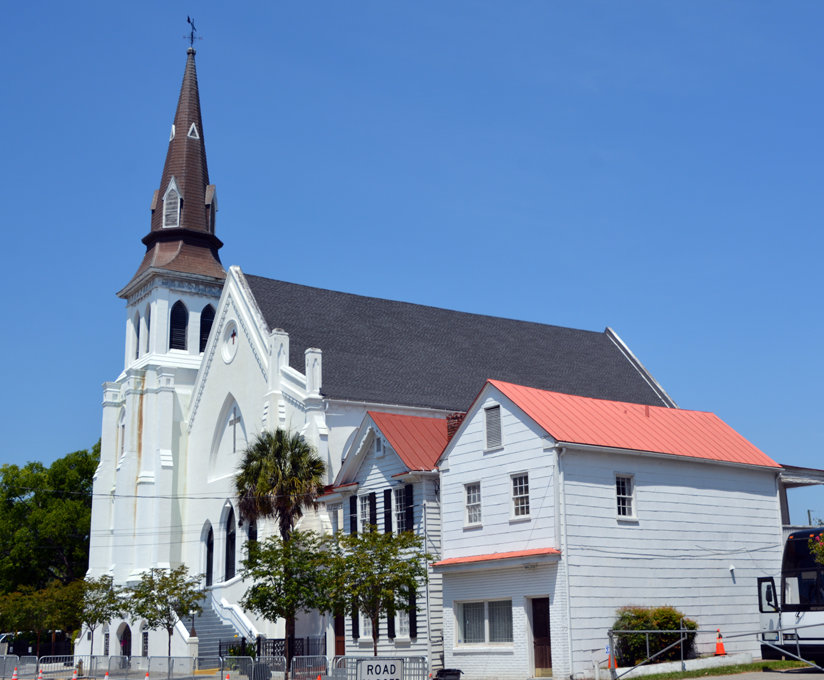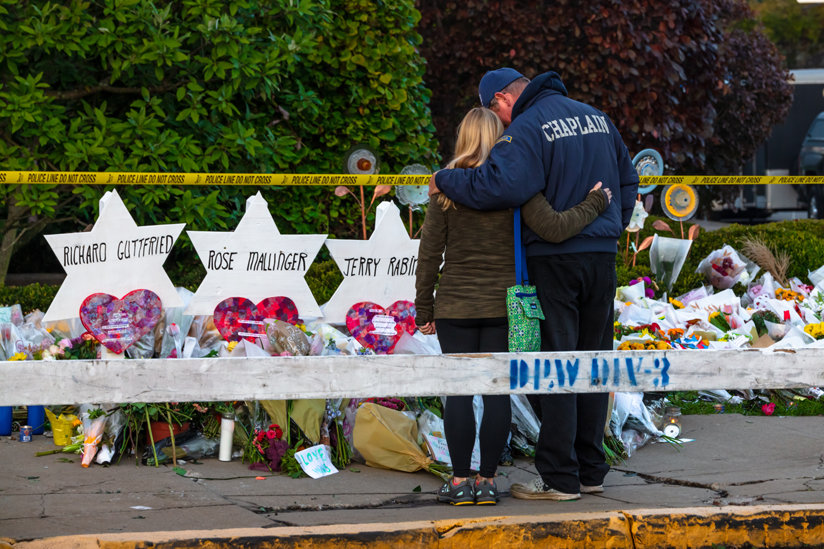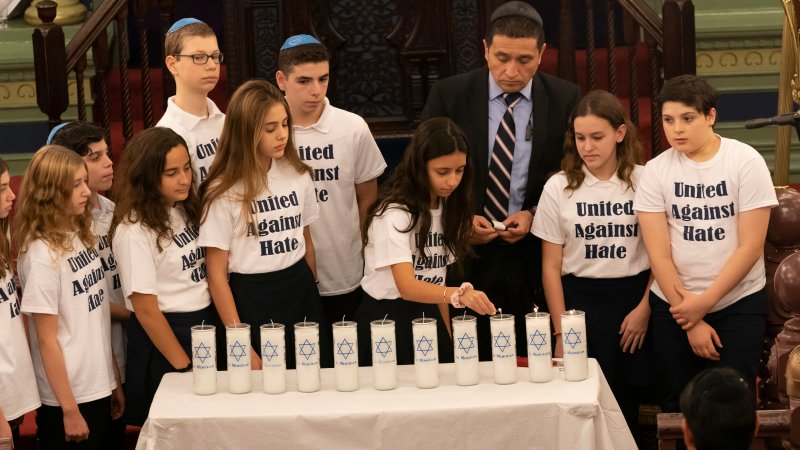False Reports: The Insidious Force at the Bottom of Hate & Violence Against Minorities
The consequences of human bigotry were on full display in a Charleston, South Carolina, federal courtroom in January 2017 when Dylan Roof was sentenced to death for the murders of nine Black members of the Emanuel African Methodist Episcopal Church. Equally evident was the human capacity for dignity and compassion as demonstrated by the family members of the victims, some of whom, while testifying to their grief and the impact the killings had on their lives, also offered Roof both forgiveness and the willingness to pray for him.

Roof, however, as had been the case since his arrest, showed not the slightest bit of remorse or sorrow at the devastation he had caused to the 35 relatives who spoke at the hearing. Instead, he looked straight ahead without expression, even ignoring pleas from some of those family members to look at them.
Though Roof had nothing to say at the sentencing hearing, he had made a complete confession when arrested, detailing without the least bit of contrition how he managed to kill nine people. In fact, he laughed while describing his actions. When asked why he committed the murders, he said he felt someone had to do something about crimes being committed by Blacks against white people.
Other violent hate crimes also tell the story of a perpetrator driven to the act by consuming what could be called “false reports.”
Racism would seem to be an obvious motivation and certainly racism has been a dark aspect of American history going back to Colonial times. But in Roof’s case, something deeper was at work. He had become immersed in a racist website which promoted the falsehood that a war is being waged against whites by violent Black people. This site led him to other internet sources. Roof became convinced that the fantasy war being created on the internet was real and that only violent action on his part could raise public awareness to a point where they would do something about it. According to survivors of the shooting, Roof told his victims, “Y’all are raping our white women. Y’all are taking over the world.”
Other violent hate crimes also tell the story of a perpetrator driven to the act by consuming what could be called “false reports.” Brandon Tarrant, responsible for the deaths of 51 people in shootings at two New Zealand mosques in March of 2019, was found to have bought into what has been called The Great Replacement Theory, which purports that in Europe and other largely Caucasian societies, people of European descent are being replaced by people from Africa and the Middle East who are predominantly Muslims. Tarrant was so thoroughly under the spell of The Great Replacement Theory, he even wrote a manifesto of his own under the same title.

Robert Bowers murdered 11 worshipers at Pittsburgh’s Tree of Life Synagogue in 2018. When arrested for his crime, he said that he wanted all Jews to die. A few hours prior to the attack, he posted on Gab, an antisemitic social media platform, about a Jewish organization affiliated with the Tree of Life Synagogue which helps refugees. The organization, the Hebrew Immigrant Aid Society (HIAS), Bowers said “likes to bring invaders in that kill our people. I can’t sit by and watch my people get slaughtered. Screw your optics, I’m going in.” Gab and other sites Bowers frequented were full of lies and bigotry. For example, other posters repeated Bowers’ lie that Jews are secretly killing non-Jews, with one stating he supported Bowers’ rampage, “as long as Jews support the indiscriminate genocide of my race.” Other posters make reference to ZOG, Zionist Operated Government, reflecting their belief that Jews covertly run various governments including that of the United States. A poll that appeared on Gab a day after the Tree of Life shootings asked, “What should the future of Jewish people in the West be?” Thirty-five percent of the responders chose genocide.
The Church of Scientology and Scientologists have also been subject to violent attacks motivated by blatant lies.
But the hatred generated by lies does not usually manifest itself in the extreme of mass murder. More often it takes the form of less notorious acts that are nonetheless destructive and that create a climate of insecurity, fear and mistrust. Consider the surge of hate crimes against Asians in many different countries date coincident with the outbreak of COVID-19.

Despite the obvious irrationality that someone of Asian descent living in San Francisco or London could have had anything to do with the origin of COVID, many such accusations have been reported throughout the world. According to a USA Today survey in March 2021, one out of every four Americans has observed Asians being blamed for the existence of the virus. While precise statistics vary, studies in different countries consistently reported a huge surge of hate crimes and the vilification of Asians as COVID began to spread.
The Church of Scientology and Scientologists have also been subject to violent attacks motivated by blatant lies. Since 2016, the Church has been subjected to hundreds of threats and incidents of violence traceable to the hate propaganda of Leah Remini, a former Church member, who encouraged a small group of ex-members to give readily disproven negative accounts of their experiences in the Church. Those influenced by Leah Remini and her now cancelled television program include an assailant in Australia who first voiced his intention to burn down the Church and later stabbed a Sydney Church staff member to death. Others include a woman driving her car through the front doors of the Church of Scientology in Austin, Texas, narrowly missing the Church’s nursery. She referred to Leah Remini as “a true inspiration” and responded “that’s too bad” when she learned she had not killed or injured anyone. In yet another incident, a man with an arsenal of guns was arrested and later convicted of a felony for threatening to assassinate the Church’s ecclesiastical leader. He told the police he was driven to the act by the propaganda of Leah Remini.

It might seem inevitable that widespread hatred and the violence it generates will always be part of human existence, but it’s not so. As we’ve seen here, it is malicious falsehoods which, when acted upon, have set people on a malicious, violent road. When these falsehoods are removed it is possible to overcome animosity.
Bigotry and divisiveness don’t have to win.
Each of us has a responsibility to demand facts and to refuse to forward malicious lies and unproven generalities. We have an even greater responsibility to point out the good that comes with the diversity of the human race. The internet has given us an unprecedented ability to communicate with one another—and an opportunity to spread love instead of hate.
The rights of freedom of speech and of the press are vital and must be protected. But our defense of those rights must be accompanied by an abiding respect for the truth as well as the determination to protect the rights of decent people to live securely, and in peace—whether or not they look, believe or live differently.










